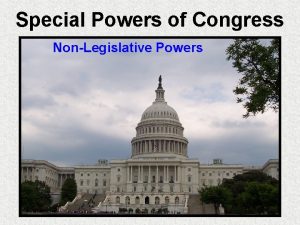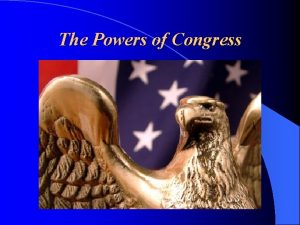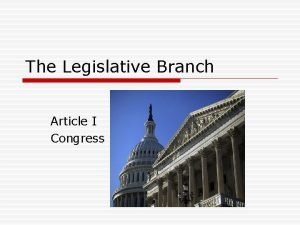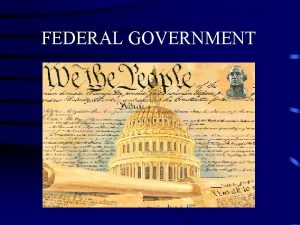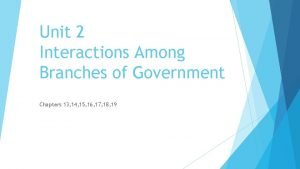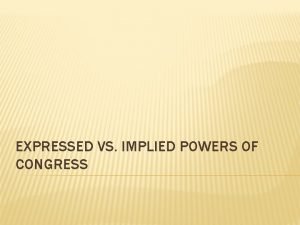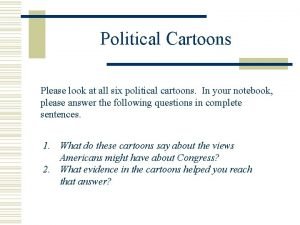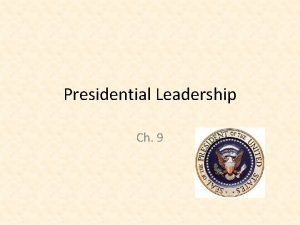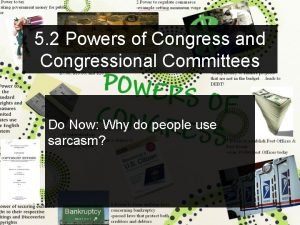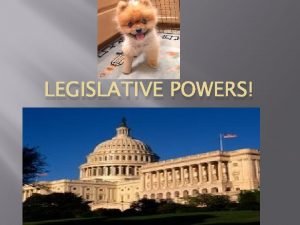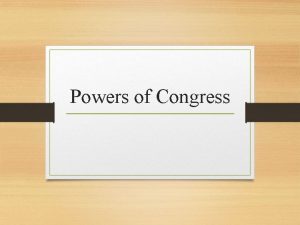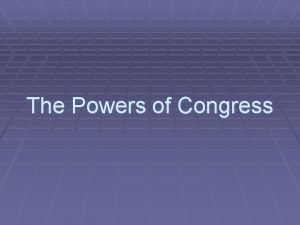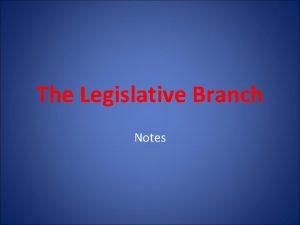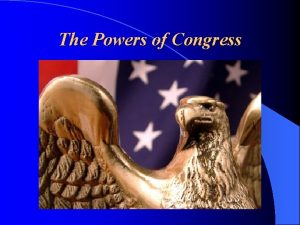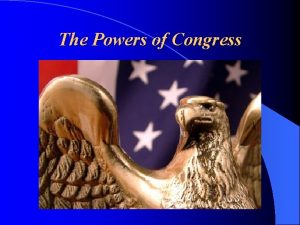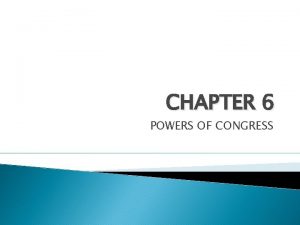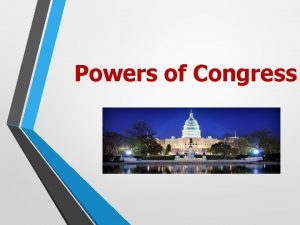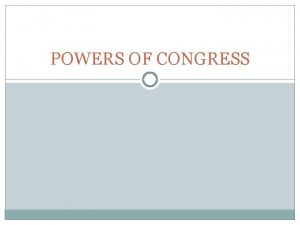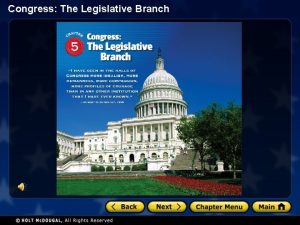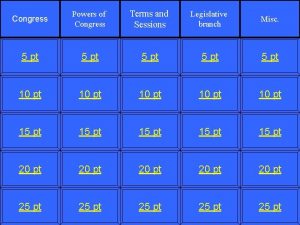The Powers of Congress Legislative Powers l Congress
















- Slides: 16

The Powers of Congress

Legislative Powers l Congress has three kinds of powers: – Enumerated/Delegat ed/Expressed – Implied – Concurrent

“Enumerated/Delegated/ Expressed” Powers l Enumerated powers are specifically given to Congress in the Constitution in Article I

“Enumerated/Delegated/ Expressed” Powers l Examples: – Raising and supporting an army and a navy – Declaring war – Naturalization laws – Coining money – Regulating domestic and foreign trade

“Implied” Powers l Powers NOT specifically given to Congress in the U. S. Constitution l Congress assumes these powers through the Elastic Clause – Gives Congress the authority to make laws that are “necessary & proper”

“Implied” Powers l. Examples: – Implementing a draft – Spending money for social programs – Regulating immigration

Concurrent Powers l. Given to both the federal and state governments l. Examples: – Making laws – Collecting taxes

Non-Legislative Powers l. There are specific powers that Congress has that are not related to making laws

Non-Legislative Powers l Presidential Appointments – – Senate has the power to approve or reject presidential appointment Appointment hearings are held where Senate questions appointees on maters related to the position to which they have been appointed

Non-Legislative Powers l Impeachment Process – Congress can remove any elected official in cases of wrong through the impeachment process – To impeach is to officially accuse someone of misconduct

Non-Legislative Powers l Impeachment Process – Once impeached by the House of Representatives, the Senate hears the case as the jury while the Chief Justice of the Supreme Court acts as the judge

Non-Legislative Powers l Investigations – – Both houses have a committee that can conduct investigations into serious issues Examples: l l l Benghazi IRS targeting issues 9/11 attacks

Non-Legislative Powers l Foreign Relations – Senate must approve all treaties, or agreements with other countries, that are negotiated by the President

Non-Legislative Power l Funding the Federal government – To fund the government Congress has the power to levy taxes – All tax bills start in the House of Representatives and must be approved by the Senate

Limits to Congressional Power l Congress cannot suspend the “writ of habeas corpus” (which takes away the right to hear the charges brought against you)

Limits to Congressional Power l Congress cannot pass “ex post facto laws” (make an act a crime after the act has been committed)
 What are 2 non legislative powers of congress
What are 2 non legislative powers of congress Non legislative powers of congress
Non legislative powers of congress Non legislative powers of congress
Non legislative powers of congress Implied power
Implied power What are the non legislative powers of congress
What are the non legislative powers of congress Non legislative duties of congress
Non legislative duties of congress Congress legislative branch
Congress legislative branch Legislative branch powers
Legislative branch powers Congress formal and informal powers
Congress formal and informal powers Expressed vs implied powers
Expressed vs implied powers President's formal and informal powers
President's formal and informal powers Implied powers cartoon
Implied powers cartoon Congress informal powers
Congress informal powers Enumerated v implied powers
Enumerated v implied powers Congress informal powers
Congress informal powers Implied powers political cartoon
Implied powers political cartoon Inherent vs implied powers
Inherent vs implied powers




